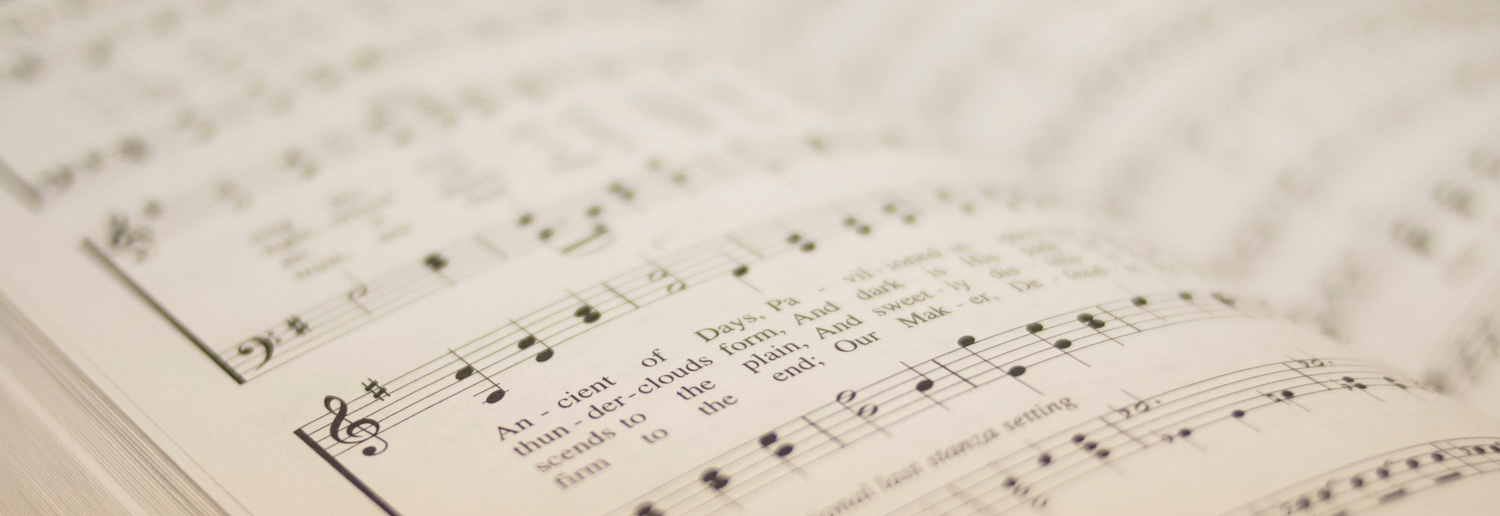 Wycliffe School
Wycliffe School
Music Literacy: Participating in Beauty
We believe, with the Historical and Biblical Tradition, that music is not a subjective, relativistic source of amusement, but rather an objectively beautiful reality, created by God to be intimately known and participated in.
As humans, music is necessary ontologically and cosmologically. We are the Imago Dei, made in the image of the God who created and sustains the universe in one beautiful, grand harmony. We were created to sing His song with Him and all His creation, for all of eternity. As the Body of Christ, we are called to fulfill God’s will in building His Church, discipling the generations, and rebuking the god of this age through the melody and harmony displayed in God’s revealed will, His Word. The Apostle Paul, in the inspiration of the Holy Spirit, specifically commands us to teach one another through the singing of God’s Word. (Colossians 3:16)
As preservers and pursuers of Truth, it is our responsibility to aid our students, teaching them and guiding them along the path to righteousness and the pursuit of Wisdom; the same wisdom which rejoiced over God during His creational act as He perfectly wove all things together (Proverbs 8:30-31). All things; every microscopic being, light or sound wave, element or mineral, geometric or astronomical reality, biological or cosmological.
We see this reality as divinely imaged in the harmony and beauty of music, and therefore participation in this musical reality is not optional.
To participate freely in this reality, one must be literate; at Imago Dei one of our essential goals is that each student may read and speak the language of music, with virtue and eloquence. We seek to accomplish this through an emphasis on immersion in the elements of Music in accordance with the Tradition of the Church (Psalms and Hymns), and the developmental, sequential methodology of Hungarian composer Zoltán Kodály (pronounced CODE-eye). This philosophy of music education has proven in its American revival to produce a life-long, joyful love and musical-enculturation within its students.
Students will participate in joyful music-making, primarily through singing, from Kindergarten to 12th grade. The pedagogy begins with an immersion in traditional American folk songs and dances, and hymns of the Church which introduce the rudimentary elements of music, progressively deepening and expanding to the more complex elements of music. By the end of sixth grade, literacy is achieved, and students are able to read and perform the great works of Western Culture as well as pursue compositional work in the Upper School.
A Note on Folk Dancing
In current culture of rampant immorality, dancing is unilaterally viewed as a suggestive activity in which one “dances at” another person. Traditional Folk Dancing, however, is communal in nature. In folk dancing, one “dances with” the group. Every piece, every step, every partner is vital to the working and beauty of the whole. One can easily see the correlation to the fostering of Love in the workings of the Body of Christ as described in 1 Corinthians 12:12-ff. Traditional Folk dancing also taught distinctly the roles God has given men and women. Men are to lead with unique strength, exercised in meekness and care for the treasure that is the woman. Women are to follow with grace, and beautify the dance as they cultivate, trace, and paint the man’s steps as only they could, having been made to be the glory of the man (1 Corinthians 11:7). At Imago Dei, it is our dream to one day see a community of folk dancing.
